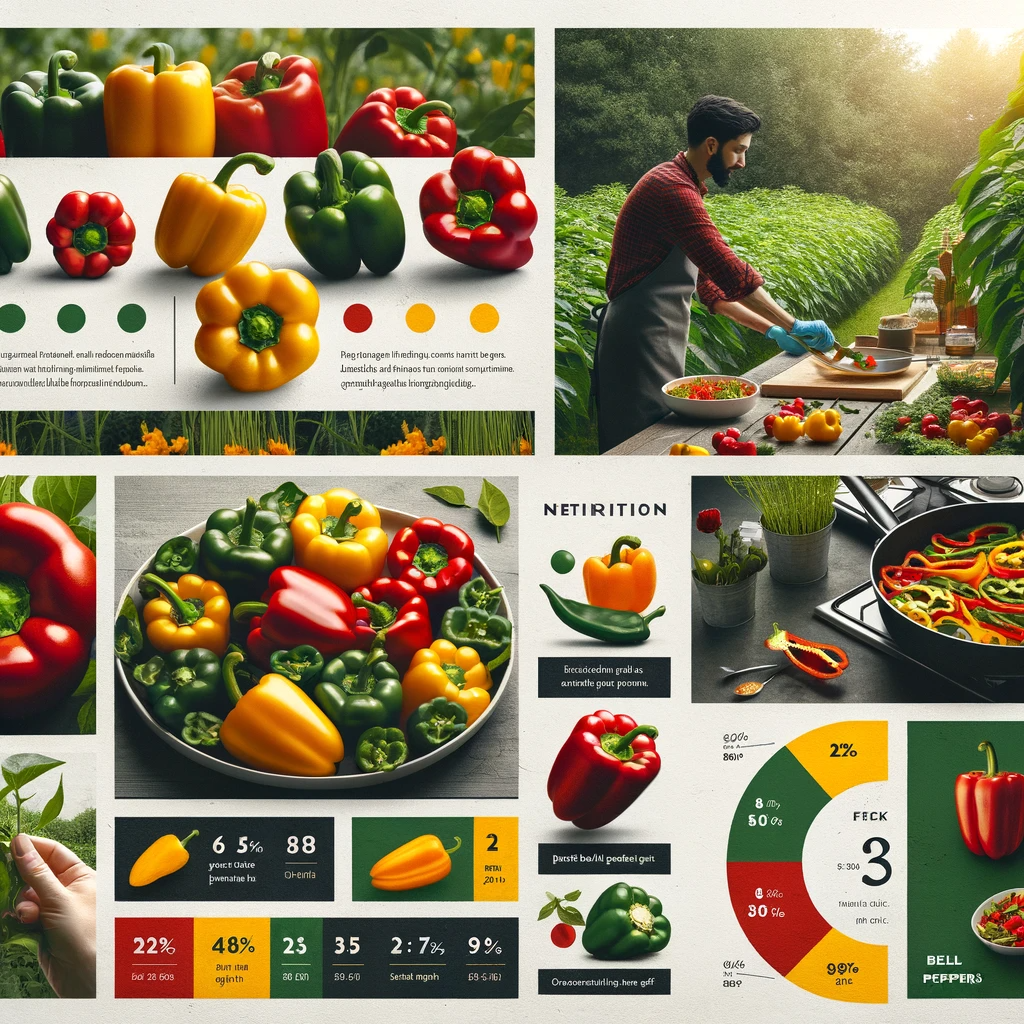Middle Eastern cuisine is renowned for its rich and diverse flavors, and the use of unique ingredients plays a pivotal role in creating these delightful tastes. Among the many ingredients that grace Middle Eastern dishes, bell peppers hold a special place. In this article, we will delve into the world of bell peppers in Middle Eastern cuisine, exploring their history, culinary applications, and the delectable dishes they enhance.
The Origin and History of Bell Peppers
Bell peppers, scientifically known as Capsicum annuum, are believed to have originated in South and Central America. They were introduced to the Middle East through trade routes, and their history in the region can be traced back hundreds of years. Bell peppers come in various colors, including red, green, yellow, and orange, each offering a unique flavor profile and nutritional benefits.
Culinary Uses of Bell Peppers in Middle Eastern Cuisine
Bell peppers are used in a wide array of Middle Eastern dishes, adding vibrant colors and distinct flavors to the cuisine. Let’s explore some of the popular culinary applications:
1. Stuffed Bell Peppers (Dolma)
Dolma, a beloved Middle Eastern dish, involves stuffing bell peppers with a mixture of rice, ground meat, onions, and aromatic spices. These stuffed peppers are then simmered in a flavorful tomato sauce until tender. The bell peppers not only serve as a delicious vessel for the stuffing but also infuse the dish with their sweet and slightly smoky taste.
2. Roasted Bell Pepper Hummus
In Middle Eastern cuisine, hummus is a staple, and adding roasted bell peppers to the mix takes it to a whole new level. The smokiness of roasted bell peppers complements the creamy texture of hummus, creating a dip that’s bursting with flavor and vibrant color. Serve it with pita bread or as a delightful accompaniment to grilled meats.
3. Muhammara – Red Pepper and Walnut Spread
Muhammara, a lesser-known Middle Eastern delight, is a savory spread made from roasted red bell peppers, ground walnuts, breadcrumbs, and a blend of spices. This dip offers a perfect balance of sweetness, nuttiness, and a hint of heat. It’s a favorite appetizer during celebrations and gatherings.
4. Shakshuka with Bell Peppers
Shakshuka, a popular breakfast dish, features bell peppers, tomatoes, onions, and poached eggs simmered in a fragrant and spicy tomato sauce. Bell peppers add a natural sweetness and crunch to this dish, elevating its taste and providing a delightful contrast to the spicy sauce.
Nutritional Benefits of Bell Peppers
Bell peppers not only enhance the flavor of Middle Eastern dishes but also contribute valuable nutrients to the cuisine. They are rich in vitamins C and A, antioxidants, and dietary fiber. These nutrients support overall health and well-being and make bell peppers a healthy addition to any meal.
Conclusion
Bell peppers are a versatile and flavorful ingredient that has seamlessly integrated into Middle Eastern cuisine. Their sweet, smoky, and slightly spicy taste adds depth and complexity to a variety of dishes, from appetizers to main courses. As you explore the culinary world of the Middle East, don’t forget to savor the unique flavors and vibrant colors that bell peppers bring to the table. Whether you’re indulging in dolma, enjoying roasted bell pepper hummus, relishing muhammara, or savoring shakshuka, you’ll discover that bell peppers are an essential ingredient in creating the rich tapestry of Middle Eastern flavors. So, why not incorporate them into your next Middle Eastern-inspired culinary adventure? Your taste buds will thank you for it!
